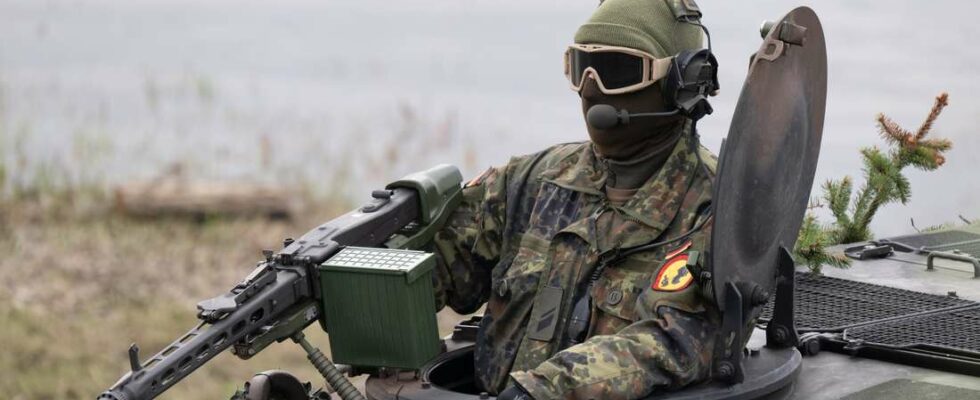Press
Polish spy chief warns: Russia is preparing for military operations against NATO’s eastern flank. Putin denies attack plans.
Warsaw – Fears of a Russian attack on NATO’s eastern flank are growing. After the Baltic states have been sounding the alarm for some time and fearing for their security, Poland is now also drawing up the horror scenario of a Russian attack on NATO soil. Even though a large part of the Russian armed forces that are normally stationed on NATO borders have currently been relocated to Ukraine, Russia intends to regenerate its military in order to NATO-Threaten borders while maintaining and expanding covert and hybrid operations.
Wladimir Putin was already prepared for a mini-operation against one of the Baltic countries, Jarosław Stróżyk, head of Poland’s military counterintelligence service, told the Polish daily Gazeta Pravna. The Russian leader is ready “to invade the famous border town of Narva on the Estonian-Russian border or land on one of the Swedish islands,” he added.
Putin says attack on NATO territory is “complete nonsense”
In March, Putin told the… BBC aggression against NATO territory is ruled out. The idea that his country, which has one of the world’s largest nuclear arsenals, Poland, would attack the Baltic states, all of which, unlike Ukraine, are members of the NATO alliance, was “complete nonsense,” he said. But he warned that if Ukraine deployed Western F-16 fighter jets from airfields in other countries, they would become “legitimate targets wherever they are.”
The NATO states are currently rushing to regain full defense capability after the Western military alliance looks back on a decade-long phase of low-intensity conflict. Kiev’s Western partners were unable to keep up with the demands of an all-out modern war, particularly because of a lack of sufficient artillery and air defense resources.
Largest NATO exercise since the Cold War on the sidelines of the Ukraine war
Stróżyk believes that the Kremlin’s imperialist goals have already been slowed down somewhat. “What the West is doing together to support Ukraine shows it that in the event of an attack on NATO, the Western reaction would be even greater,” said the intelligence chief. The German federal government is also currently trying to send strong signals about NATO and Europe’s defense capability.
“In an emergency, Germany will defend every centimeter of NATO territory,” said Chancellor Olaf Scholz (SPD) during a visit to Lithuania on Monday (May 6th), as reported by Das RND. The Bundeswehr took part in the largest NATO exercise since the end of the Cold War: Steadfast Defender. Germany wants to set up a brigade in Lithuania outside of its own territory for the first time by 2027. Scholz told his Lithuanian colleagues: “An attack on you would be an attack on all of us.”
“War has returned to Europe” – SPD is committed to a strong NATO
Defense Minister Boris Pistorus (SPD) also expressed his strong commitment to the Western defense alliance during his visit to the USA. “NATO is central to our security and we do not take it for granted,” he said loudly dpa. “We understand that times have changed once again. The war has returned to Europe and the time for the peace dividend is over. That’s why we’re doing our part. Germany will spend more money on defense this year than ever before in the history of the Bundeswehr.”
He pointed out that NATO’s two percent target will be achieved “and we cannot stop at this point.” Within NATO, more and more members are calling for higher investments. British Foreign Minister David Cameron, for example, is demanding loudly from the NATO states afp an increase in military spending to 2.5 percent of gross domestic product. At the upcoming NATO summit in July it must be made clear that all allies will soon meet the two percent target, according to previously published excerpts from a speech by Cameron planned for Thursday (May 9th) at the National Center for Cyber Security in London. “And then we have to quickly introduce 2.5 percent as a target,” it continues. (LaHeMa)

